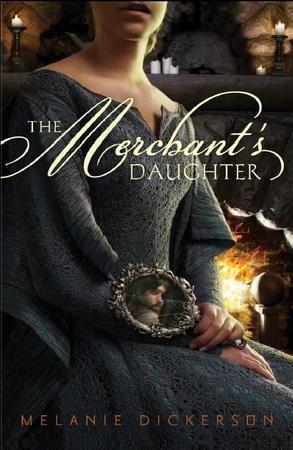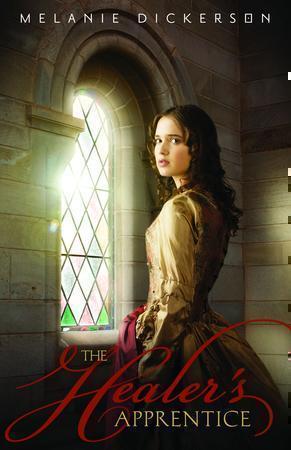 Melanie Dickerson is the author of “The Healer’s Apprentice” and “The Merchant’s Daughter.” Below is a complete transcript of her interview with Cracking the Cover.
Melanie Dickerson is the author of “The Healer’s Apprentice” and “The Merchant’s Daughter.” Below is a complete transcript of her interview with Cracking the Cover.
Background — Have you always wanted to write? Why?
I was very interested in becoming a novelist when I was in high school, but I put writing aside for several years before picking it back up again after my second daughter was born.
Why write for young adults?
I feel privileged to speak into the lives of young adults in my own small way, giving them clean, exciting books to read. These are the type of books I would have loved as a teen—as an adult too!
Where did the idea for “The Merchant’s Daughter” come from?
I had just finished writing The Healer’s Apprentice, which was loosely based on the Sleeping Beauty fairy tale, and I thought it would be fun to write a whole series of Medieval romances based on the fairy tales. And since Beauty and the Beast was my favorite fairy tale, it was a natural choice. The story gradually came to me, and I thought of it as kind of a gothic story, set in the misty countryside of England.
Briefly tell me a little about it.
Annabel’s family is in trouble for not doing their share of the work for the lord of the land. To escape pressure from her family to marry the bailiff, who is old enough to be her father, she goes to work for the new lord as his indentured servant. Lord Ranulf is scarred from a wolf attack, and a betrayal from his past has scarred his heart. At first he mistrusts Annabel, and she tries to steer clear of him, but they end up gradually getting to know each other and changing their opinions of each other.
A year and a half, initially. It took me longer to write than any of my other books.
Who is your favorite character in the book? Why?
I have to say, Lord Ranulf is a great favorite of mine, but so is Annabel.
What were the challenges working on “The Merchant’s Daughter”? The highlights?
The research required for this book was a little challenging, as there is so much information available about Medieval England, and yet a lot of it is either wrong or partially wrong. There’s a lot of information to wade through. And I had to find out all about the judicial system in place at the time. That was a bit tedious. Plus, there is an intensity in this story that made it an emotional story to write. The highlight was writing the gradual falling in love of the two characters.
Christian themes are key to your book. How did you work them into this Beauty and the Beast tale?
Christian themes just happen naturally. They evolve according to the characters’ personalities and the premise of the story. The 14th century creates its own Christian themes because of the fact that most people had never seen a Bible and couldn’t read one if they had it. This factors greatly into my story.
“The Merchant’s Daughter” is your second book. Do you feel pressure to live up to the success of your first book, “The Healer’s Apprentice”?
I was somewhat anxious to see how the fans of The Healer’s Apprentice would react to The Merchant’s Daughter. So far they are pretty evenly split. About a third of the people like The Merchant’s Daughter slightly better than The Healer’s Apprentice, and one-third vice versa, and one-third say they can’t say which they like the best because they like them equally. As for the rest, I’m just always hoping for the best.
 Both of your books have fairy tales as a jumping off point? Why? What is it about fairy tales that speak to you as a writer?
Both of your books have fairy tales as a jumping off point? Why? What is it about fairy tales that speak to you as a writer?
Fairy tales are fairly outlandish, unbelievable tales, and yet they’re intriguing and fun. I just thought it would be fun to take the basic story and make it realistic, to ask the question, What if this really happened? What would the story be like? And there are some over-the-top characters in fairy tales, and yet we all know someone who reminds us of the evil stepmother, or the slighted princess, and we all feel like Cinderella at some point in our lives.
What are you working on now?
Right now I am working on a Cinderella story, and I’ve recently finished a Snow White story.
Looking back, how has your writing evolved from when you first started until now?
There is really no comparison. Writing is a skill and it can be learned. I studied the craft of writing, am still studying it, and I have improved greatly, and I hope to improve a lot more!

